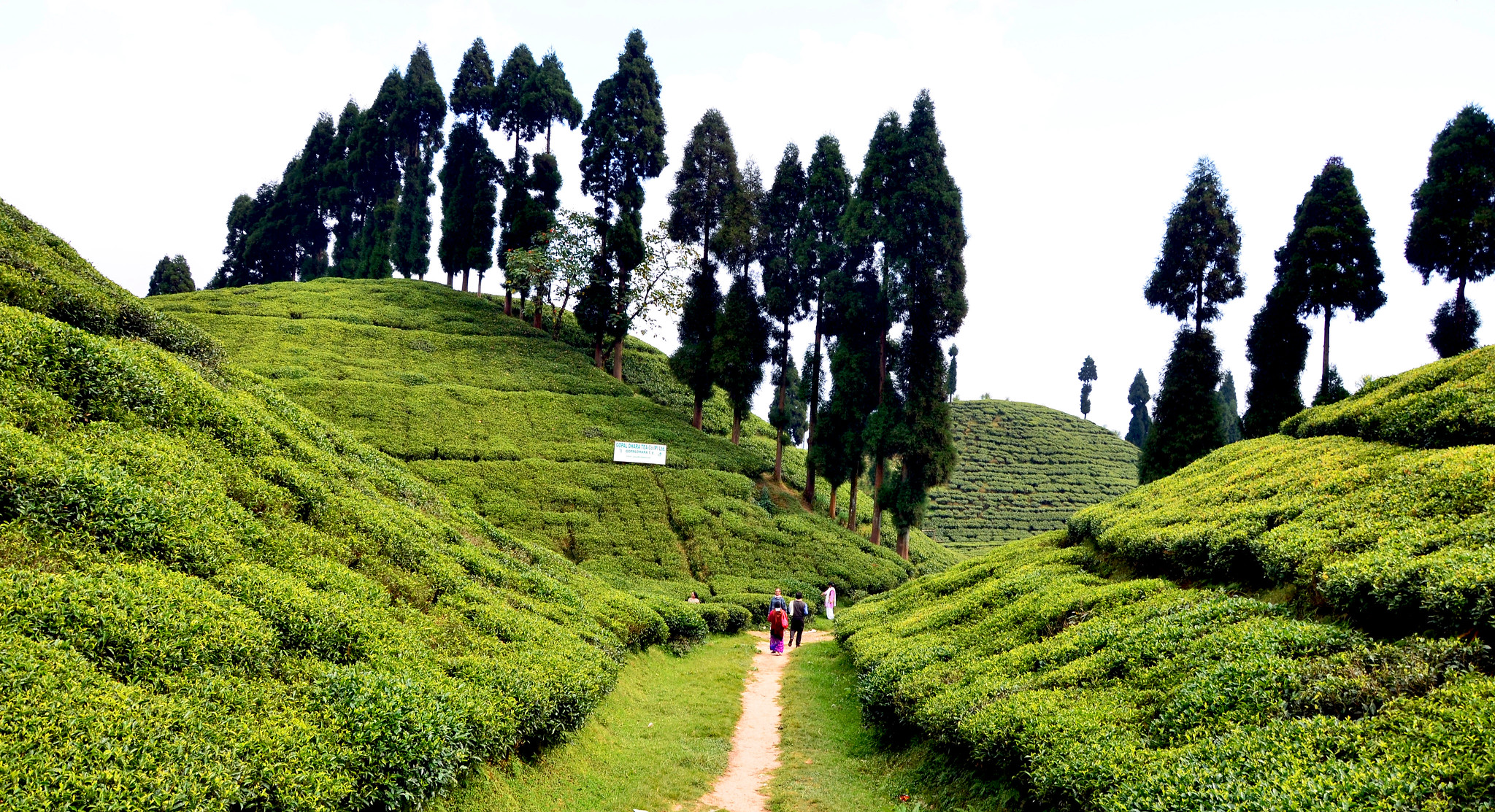Darjeeling Tea Industry: Addressing Production Concerns

Table of Contents
The Impact of Climate Change on Darjeeling Tea Production
Changing Weather Patterns and Tea Yield
Erratic rainfall, unpredictable temperatures, and increasingly extreme weather events are significantly impacting Darjeeling tea yield and quality. These changing weather patterns disrupt the delicate balance needed for optimal tea bush growth and leaf development.
- Decreased yield: Fluctuating temperatures and inconsistent rainfall lead to lower tea harvests, directly affecting the profitability of Darjeeling tea estates.
- Changes in flavor profile: Variations in temperature and sunlight exposure can alter the chemical composition of the tea leaves, impacting the characteristic flavor and aroma of Darjeeling tea.
- Increased susceptibility to pests and diseases: Unpredictable weather conditions create favorable environments for pests and diseases, leading to further yield losses and increased costs for pest control.
Studies indicate a noticeable reduction in Darjeeling tea yield in recent years, directly correlated with increasingly erratic weather patterns. The delicate balance of temperature and moisture required for optimal growth is being disrupted, affecting the very essence of Darjeeling tea production.
Adaptation Strategies for a Changing Climate
To mitigate the effects of climate change, Darjeeling tea estates must adopt sustainable and resilient agricultural practices.
- Implementing water-efficient irrigation: Investing in drip irrigation and other water-saving techniques can help ensure consistent moisture levels, even during periods of drought.
- Promoting organic farming: Organic farming practices enhance soil health and resilience, improving the tea bushes' ability to withstand environmental stress.
- Diversifying tea varieties: Cultivating drought-resistant and disease-resistant tea varieties can increase the resilience of Darjeeling tea production to climate change.
Several Darjeeling tea estates are already pioneering innovative adaptation strategies, such as rainwater harvesting and the introduction of climate-resilient tea clones. These initiatives offer hope for a more sustainable future for Darjeeling tea production.
Labor Shortages and the Future of Darjeeling Tea Picking
The Challenges of Attracting and Retaining Labor
The Darjeeling tea industry faces a critical labor shortage, primarily due to several factors:
- Aging workforce: Many experienced tea pickers are retiring, and there's a lack of younger individuals entering the profession.
- Lack of skilled labor: The unique skill required for hand-plucking Darjeeling tea is not easily transferable, and there's a lack of formal training programs.
- Competition from other industries: Opportunities in urban areas and other sectors offer more attractive wages and better working conditions, leading to migration away from tea plantations.
The skilled hand-picking of Darjeeling tea is a crucial element in maintaining its superior quality. The decline in experienced pickers poses a significant threat to this crucial aspect of Darjeeling tea production.
Innovative Solutions for Labor Management
Addressing the labor shortage requires a multi-pronged approach:
- Investing in worker welfare: Improving wages, benefits, and working conditions can attract and retain workers.
- Implementing fair trade practices: Fair trade certifications can provide a premium price for Darjeeling tea, allowing for better wages and working conditions.
- Exploring technology for efficient harvesting: While maintaining traditional hand-plucking remains vital, exploring technology for tasks like trimming and transportation can improve efficiency.
Investing in worker welfare and exploring technological advancements while preserving the traditional aspects of Darjeeling tea production is crucial for its future.
Market Fluctuations and the Price of Darjeeling Tea
Global Competition and Market Demand
Darjeeling tea faces intense competition from other tea-producing regions, and consumer preferences are constantly evolving.
- Fluctuating international prices: Global market forces directly impact the price of Darjeeling tea, often leading to price instability.
- Increased competition from mass-produced teas: The availability of cheaper, mass-produced teas poses a challenge to the premium pricing of Darjeeling tea.
- Changing consumer tastes: Consumer preferences are shifting towards specialty teas and unique flavor profiles, requiring adaptation in marketing and product diversification.
Understanding and adapting to these global market dynamics is vital for the continued success of Darjeeling tea production.
Strategies for Maintaining Market Share and Value
To retain market share and maintain the value of Darjeeling tea, several strategies are necessary:
- Strengthening Darjeeling tea's brand identity: Promoting the unique qualities and heritage of Darjeeling tea through targeted marketing and branding initiatives.
- Investing in quality assurance: Maintaining the highest standards of quality control throughout the entire production process.
- Exploring niche markets: Targeting specific consumer segments, such as organic tea drinkers or those seeking premium, specialty teas.
By focusing on branding, quality, and niche marketing, the Darjeeling tea industry can reinforce its position in the global market.
Conclusion
The Darjeeling tea industry faces substantial challenges; however, its exceptional quality and global reputation form a solid foundation for future growth. Addressing the impacts of climate change, securing a stable workforce, and adapting to market fluctuations are essential for the sustainable production of Darjeeling tea. By implementing sustainable farming techniques, improving worker welfare, and adopting targeted marketing strategies, the industry can overcome these obstacles. Investing in the future of Darjeeling tea production is an investment in preserving a valuable cultural heritage and a significant economic resource. Let's work together to safeguard this iconic beverage for generations to come.

Featured Posts
-
 How Much Do Lizzo Tickets Cost For Her In Real Life Tour A Price Guide
May 04, 2025
How Much Do Lizzo Tickets Cost For Her In Real Life Tour A Price Guide
May 04, 2025 -
 Expert Ufc Des Moines Predictions And Analysis
May 04, 2025
Expert Ufc Des Moines Predictions And Analysis
May 04, 2025 -
 Fans Analyze Anna Kendricks Body Language In Blake Lively Interview
May 04, 2025
Fans Analyze Anna Kendricks Body Language In Blake Lively Interview
May 04, 2025 -
 Britains Got Talent Ant And Dec Halt Live Show Twice Simon Cowell Furious
May 04, 2025
Britains Got Talent Ant And Dec Halt Live Show Twice Simon Cowell Furious
May 04, 2025 -
 3 Million In Undisclosed Nuclear Stock Governor Cuomos Financial Holdings
May 04, 2025
3 Million In Undisclosed Nuclear Stock Governor Cuomos Financial Holdings
May 04, 2025
